By Denise Dávila on Behalf of the Biography Clearinghouse
Using Viewfinders Sister Corita Kent authored provocative multimodal compositions that were inspired by looking closely at ordinary objects and were imbued with intertextual meanings. As suggested in Make Meatballs Sing, much of her work began by focusing her attention on specific elements and blocking out others. She employed cardboard viewfinders with her students as tools for developing the skill of looking. These next activities build upon the use of viewfinders in the classroom. They are adapted from the Make Meatballs Sing Curriculum Guide.
Denise Dávila is an assistant professor at the University of Texas at Austin. She studies children’s literature and researches the home literacy practices of families with young children in under-resourced communities. By Angela Wiseman and Ally Hauptman, Breakfast Committee co-chairs
Ally Hauptman is a CLA Board Member and co-chair of the 2022 CLA Breakfast Committee. She is an associate professor at Lipscomb University in Nashville, TN. Angela Wiseman is a CLA Board Member and is co-chair of the 2022 CLA Breakfast Committee. She is an associate professor of literacy education at North Carolina State University. By Erika Thulin Dawes and Xenia Hadjioannou on behalf of the Biography Clearinghouse 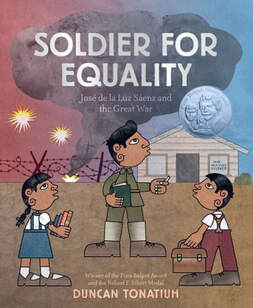 We close out the school year immersed in social strife and conflict. Our students are grappling both with big questions about humanity and substantial uncertainties about everyday life. Recent research describes rising mental health concerns for young people (Acheson, 2020; Cowie & Myers, 2021; Samji et al. 2022) and it’s not surprising that maintaining optimism is challenging in the context of war, a global pandemic, and climate change. As educators, we are seeking ways to provide our students with grounding and with hope. And we believe that biographies, life stories of inspiring people, can help to provide both an anchor and inspiration. Our latest Biography Clearinghouse entry features Duncan Tonatiuh’s picturebook biography Soldier for Equality: José de la Luz Sáenz and the Great War. Using his trademark illustrative style, digital collage inspired by Mixtec Pre-Columbian art, Tonatiuh describes the World War I experiences of ‘Luz’; a teacher, activist, Texan, and a person with Mexican heritage. Toniatiuh’s biography of José de la Luz Sáenz is a powerful narrative of the transformative power of literacy. Luz’s education and multilingualism were instrumental in his life trajectory; his knowledge allowed him to navigate the battlefield safely, keeping him out of the trenches and instead in a fortified command post for the intelligence service. He developed his skills in organizing while teaching English to Mexican American soldiers. And upon his return to teaching when the war was over, he turned his outrage over unequal schooling for Mexican American children into activism, establishing the League of United Latin American Citizens (LULAC), an organization that helped to end the segregation of Latinx children from white schools. In our Biography Clearinghouse entry, we provide an interview with Duncan Tonatiuh and a collection of teaching ideas to support student exploration of Soldier for Equality. These teaching ideas encourage students to consider the transformative power of literacy and the generative power of community organizing and activism. They include: an exploration of translanguaging and theme development in picturebooks; a history of and contemporary look at the experience of minoritized populations in the United States army; a call to allyship to counter bullying; a visual literacy exercise exploring traditional artistic motifs; and a tribute to teacher activists. Below is an excerpt of the teaching ideas in the Biography Clearinghouse entry for Soldier for Equality: José de la Luz Sáenz and the Great War:
Teachers as Activists
Citations Acheson, R. (2020). Research digest: The impact of the covid-19 pandemic on child, adolescent, young adult, and family mental health. Journal of Child Psychotherapy, 46(3), 429-440. https://doi.org/10.1080/0075417X.2021.1912810 Cowie, H., & Myers, C. (2021). The impact of the COVID‐19 pandemic on the mental health and well‐being of children and young people. Children & Society, 35(1), 62-74. https://doi.org/10.1111/chso.12430 Samji, H., Wu, J., Ladak, A., Vossen, C., Stewart, E., Dove, N., Long, D., & Snell, G. (2022). Review: Mental health impacts of the COVID‐19 pandemic on children and youth – a systematic review. Child and Adolescent Mental Health, 27(2), 173-189. https://doi.org/10.1111/camh.12501 Erika Thulin Dawes is a Professor of Language and Literacy at Lesley University where she teaches courses in children’s literature and early childhood literacy and is the program director of the graduate Early Childhood Education program. Erika is a former chair of NCTE’s Charlotte Huck Award for Outstanding Fiction for Children. Xenia Hadjioannou is an Associate Professor of Language and Literacy Education at the Harrisburg campus of Penn State University where she teaches and works with pre- and in-service teachers through various courses in language and literacy methodology. She is the Vice President and Website Manager of the Children's Literature Assembly, and a co-editor of The CLA Blog. The Bonnie Campbell Hill National Literacy Leader Award
|
|
Classified: The Secret Career of Mary Gold Ross, Cherokee Aerospace Engineer by Cherokee author Traci Sorell and Métis illustrator Natasha Donovan is an excellent example of a biography that features a woman in a STEM career. The book shows Mary’s love of mathematics and traces her path from teaching, to becoming Lockheed’s first female engineer, and then a member of the Skunk Works division working on satellites and spacecraft.
Extensive back matter includes a timeline, photos, an author’s note, an explanation of the Cherokee values mentioned in the text, source notes, and a bibliography. Illustrations showcase some of the aircraft Mary worked on such as the Lockheed A-12 and the Starfighter F-104C, as well as equations related to the projects. |
- Read the Smithsonian article “Mary Golda Ross: Aerospace Engineer, Educator, and Advocate.”
- Read the Smithsonian article “Mary Golda Ross: She Reached for the Stars.”
- Watch the Reading Rockets video: “Traci Sorell: Classified: Mary Golda Ross, Cherokee Aerospace Engineer.”
- Access the author’s website for additional materials that explore the Cherokee values Mary personified.
- There is also a Classified Teaching Guide which contains many activity ideas for experimenting with the forces of flight.
|
Blast Off! How Mary Sherman Morgan Fueled America into Space written by Suzanne Slade and illustrated by Sally Wern Comport is another of the untold stories of the space program. Working with two engineers as her assistants, Mary Sherman Morgan created the rocket fuel hydyne which powered the launch of the first American satellite into space. This biography explores Mary’s late start in school, her determination to pursue a career in chemistry, and her work at North American Aviation.
This book also has plenty of back matter with photos, a timeline, a selected bibliography, and more details about Mary, the Juno 1 rocket and the Explorer 1 satellite. The author’s note includes an explanation of how difficult it was to find information. She states, “Mary Morgan’s history is not well-documented. Unfortunately, that is true of many women who have made meaningful contributions to science and other fields.” Thanks to the author’s persistence in reaching out to family members, people from Mary’s hometown, and aerospace experts, she was able to create this inspiring story. |
- The book trailer shows the important launch Mary was working toward with her rocket fuel.
- This NASA video tells more about Explorer 1 and its lasting legacy for space exploration.
- NASA/Jet Propulsion Laboratory has a web page on Explorer 1 with links to photos, videos, and other information.
- In this short BBC video George Morgan talks about his mother and Rocket Girl, the book he wrote about her work developing rocket fuel.
- To make experiments of their own about the perfect fuel ratio for a rocket launch, students might enjoy working with fizzy rockets and trying out different proportions of water to Alka-Seltzer tablets to power the launch. SciTech Labs has posted a how-to video.
- There is also a lesson plan with instructions available from the Civil Air Patrol.
By Mary Ann Cappiello, Jennifer M. Graff and Melissa Quimby on behalf of The Biography Clearinghouse

Melissa Quimby, a 4th grade teacher in Massachusetts, has written the inaugural entry in our new feature “Stories from the Classroom.” Melissa is the genius behind #MeetSomeoneNewMonday, a weekly initiative that has spread from her classroom to her grade level team to an entirely different school in just three years.
This initiative launched when Melissa decided to share her passion for picturebook biographies with her students through interactive read-alouds. They were hooked! As Melissa writes, “Over time, I molded this project in intentional ways, and it evolved into an adventure that focused on identity, centered marginalized and minoritized communities, and cultivated thoughtful, strategic middle grade readers.” What started as a way to share nonfiction picturebooks as an engaging and compelling art form developed into a more nuanced exploration of global changemakers–past and present. With their weekly reading of picturebook biographies, students grow as readers and thinkers and deepen their individual and collective sense of agency.
In the following excerpts, Melissa describes how she reveals each week’s notable changemaker to her students and shares some of her picturebook biography selections.
Monday Read-Aloud Routines
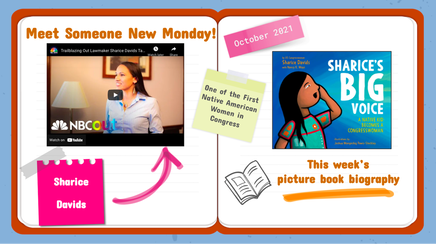 Reveal Slide Example
Reveal Slide Example Some weeks, interactive read aloud time happens on Monday morning immediately following the reveal. On some Mondays, it works best for us to huddle up in the afternoon. Occasionally, we steal pockets of time throughout our busy schedule to enjoy the biography of the week in smaller doses. When we read the text is not as important as how we read the text. The heart of this work truly lies in how we generate emotional investment within our students and how we help our students’ reactions and ideas blossom into new thinking about the world and ways that they can take action in their own lives for themselves and others. Sometimes, we simply read the biography to love it. In those moments, readers are silent with their eyes glued to the book, scanning the illustrations, wide-eyed when something surprising happens. Perhaps they whisper something to their neighbor, let out an audible gasp or share a comment aloud. Sometimes, we read to grow ideas. In these moments, readers are tracking trouble, considering how the figure responds to obstacles. They are ready to turn to their partner and reach for a precise trait word or theme and supporting evidence.
You can also reach out to Melissa through her website (QUIMBYnotRamona) or Twitter (@QUIMBYnotRamona) to discuss how to implement #MeetSomeoneNew initiative in your classroom or school.
Inspired by Melissa’s picturebook biography initiative or done something similar? Share your ideas and stories with us via email: [email protected]. Or, chime in on Twitter (@teachwithbios), Facebook, or Instagram with your own #teachwithbios ideas and picturebook biography recommendations.
Mary Ann Cappiello teaches courses in children’s literature and literacy methods at Lesley University, blogs about teaching with children’s literature at The Classroom Bookshelf. She is a former chair of NCTE’s Orbis Pictus Award for Outstanding Nonfiction K-8.
Jennifer M. Graff is an Associate Professor in the Department of Language and Literacy Education at the University of Georgia where her scholarship focuses on diverse children’s literature and early childhood literacy practices. She is a former committee member of NCTE’s Orbis Pictus Award for Outstanding Nonfiction K-8, and has served in multiple leadership roles throughout her 16+ year CLA membership.
Authors:
CLA Members
Supporting PreK-12 and university teachers as they share children’s literature with their students in all classroom contexts.
The opinions and ideas posted in the individual entries are those of the individual authors and do not necessarily reflect the opinions or views of CLA or the Blog Editors.
Blog Editors
contribute to the blog
If you are a current CLA member and you would like to contribute a post to the CLA Blog, please read the Instructions to Authors and email co-editor Liz Thackeray Nelson with your idea.
Archives
May 2024
April 2024
March 2024
February 2024
January 2024
December 2023
November 2023
October 2023
September 2023
August 2023
May 2023
April 2023
March 2023
December 2022
November 2022
October 2022
September 2022
August 2022
June 2022
May 2022
April 2022
March 2022
February 2022
January 2022
December 2021
November 2021
October 2021
September 2021
August 2021
June 2021
May 2021
April 2021
March 2021
February 2021
January 2021
December 2020
November 2020
October 2020
September 2020
August 2020
June 2020
May 2020
April 2020
March 2020
Categories
All
Activism
Advocacy
African American Literature
Agency
All Grades
American Indian
Antiracism
Art
Asian American
Authors
Award Books
Awards
Back To School
Barbara Kiefer
Biography
Black Culture
Black Freedom Movement
Bonnie Campbell Hill Award
Book Bans
Book Challenges
Book Discussion Guides
Censorship
Chapter Books
Children's Literature
Civil Rights Movement
CLA Auction
CLA Breakfast
CLA Expert Class
Classroom Ideas
Collaboration
Comprehension Strategies
Contemporary Realistic Fiction
COVID
Creativity
Creativity Sponsors
Critical Literacy
Crossover Literature
Cultural Relevance
Culture
Current Events
Digital Literacy
Disciplinary Literacy
Distance Learning
Diverse Books
Diversity
Early Chapter Books
Emergent Bilinguals
Endowment
Family Literacy
First Week Books
First Week Of School
Garden
Global Children’s And Adolescent Literature
Global Children’s And Adolescent Literature
Global Literature
Graduate
Graduate School
Graphic Novel
High School
Historical Fiction
Holocaust
Identity
Illustrators
Indigenous
Indigenous Stories
Innovators
Intercultural Understanding
Intermediate Grades
International Children's Literature
Journal Of Children's Literature
Language Arts
Language Learners
LCBTQ+ Books
Librarians
Literacy Leadership
#MeToo Movement
Middle Grade Literature
Middle Grades
Middle School
Mindfulness
Multiliteracies
Museum
Native Americans
Nature
NCBLA List
NCTE
NCTE 2023
Neurodiversity
Nonfiction Books
Notables
Nurturing Lifelong Readers
Outside
#OwnVoices
Picturebooks
Picture Books
Poetic Picturebooks
Poetry
Preschool
Primary Grades
Primary Sources
Professional Resources
Reading Engagement
Research
Science
Science Fiction
Self-selected Texts
Small Publishers And Imprints
Social Justice
Social Media
Social Studies
Sports Books
STEAM
STEM
Storytelling
Summer Camps
Summer Programs
Teacher
Teaching Reading
Teaching Resources
Teaching Writing
Text Sets
The Arts
Tradition
Translanguaging
Trauma
Tribute
Ukraine
Undergraduate
Using Technology
Verse Novels
Virtual Library
Vivian Yenika-Agbaw Student Conference Grant
Vocabulary
War
#WeNeedDiverseBooks
YA Lit
Young Adult Literature

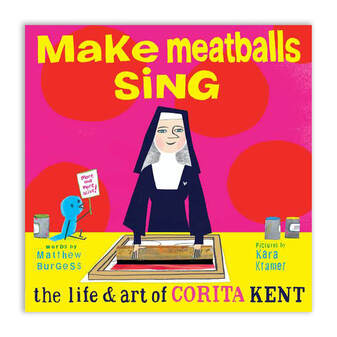

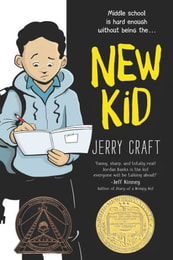
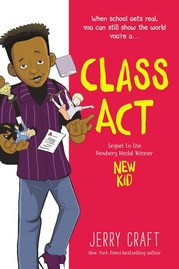
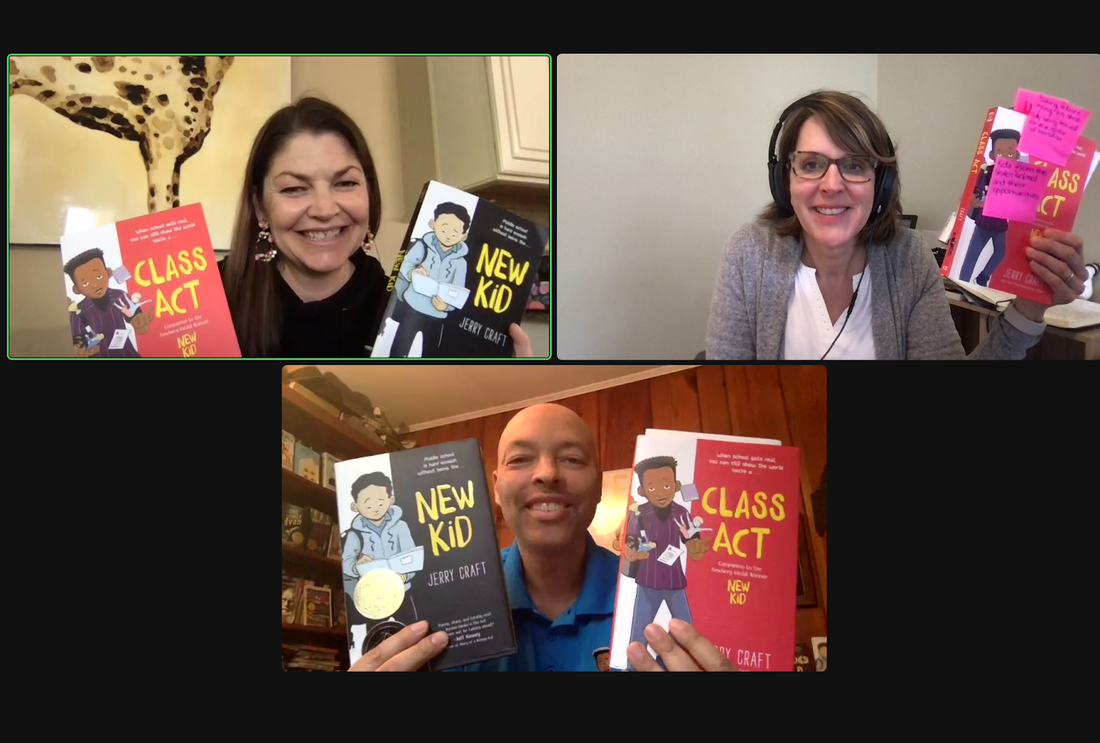

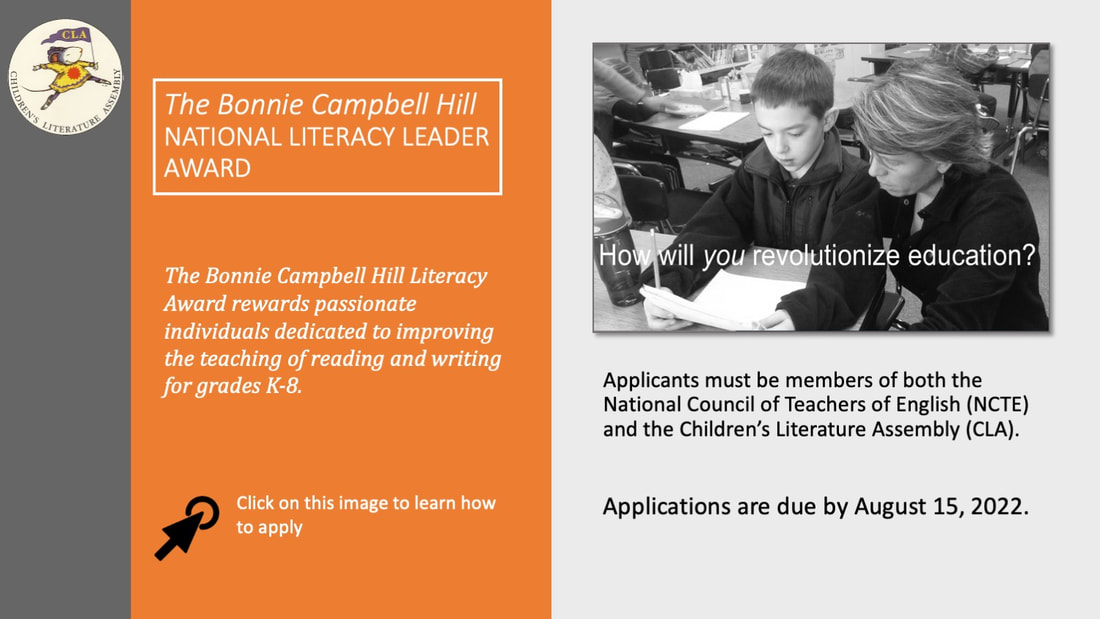
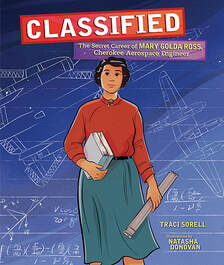
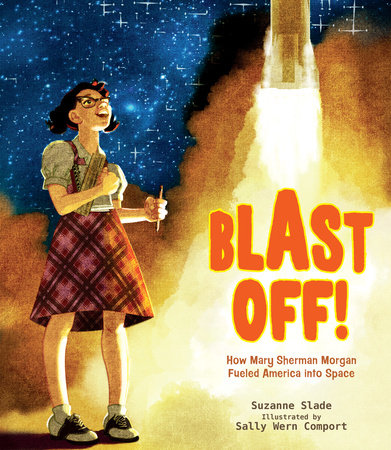
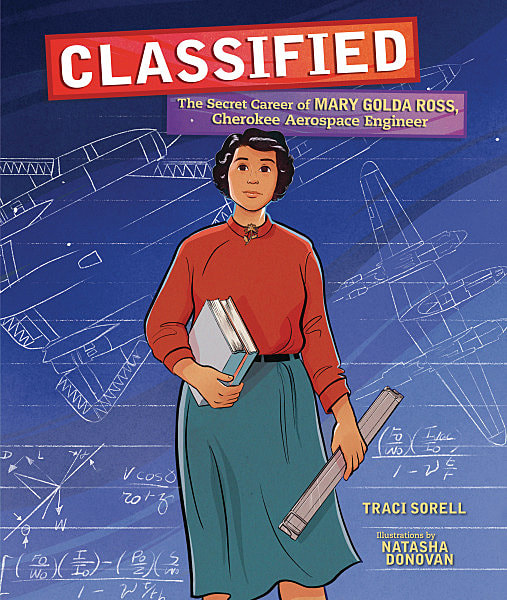
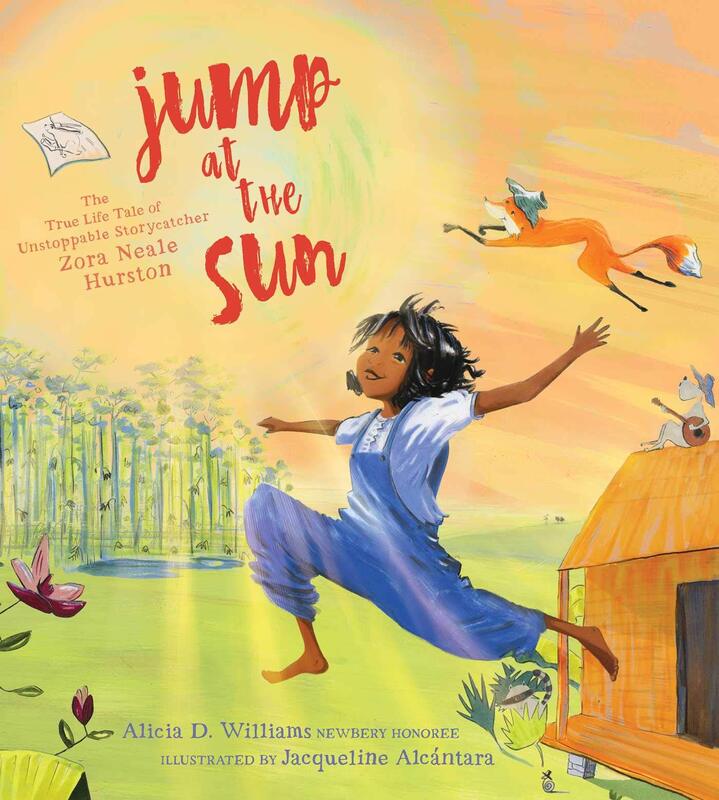
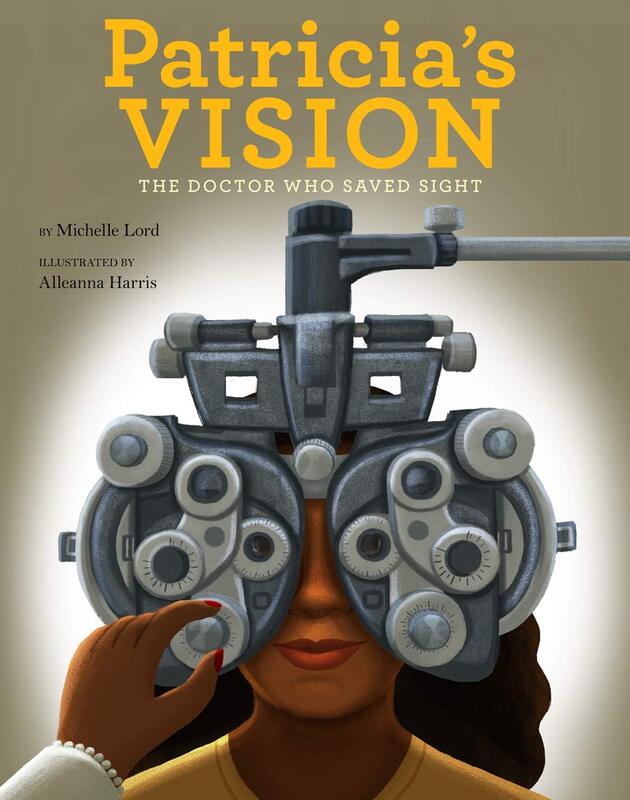
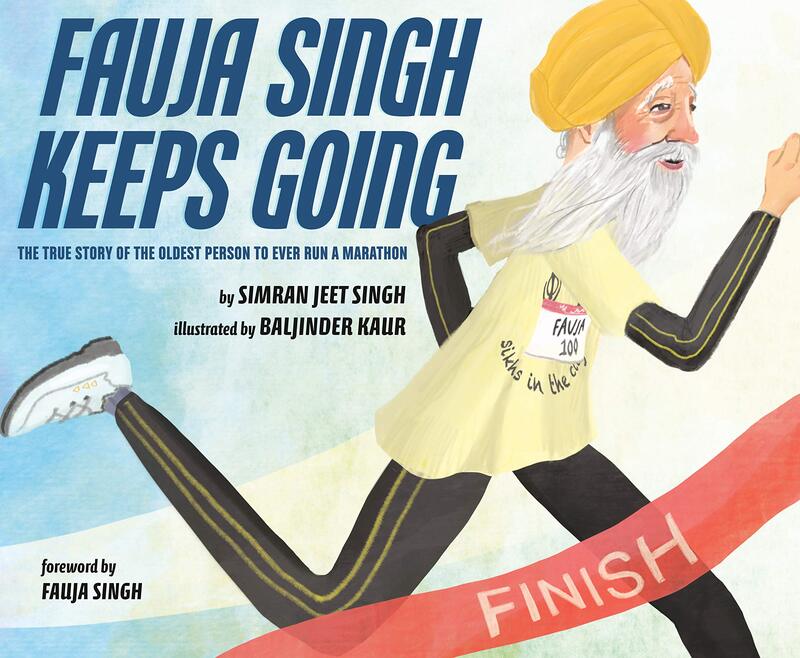
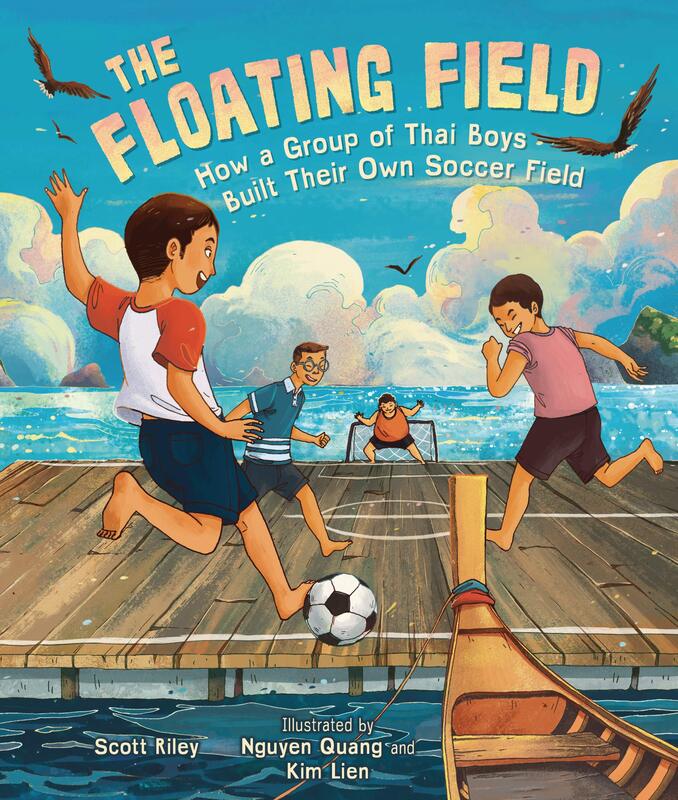
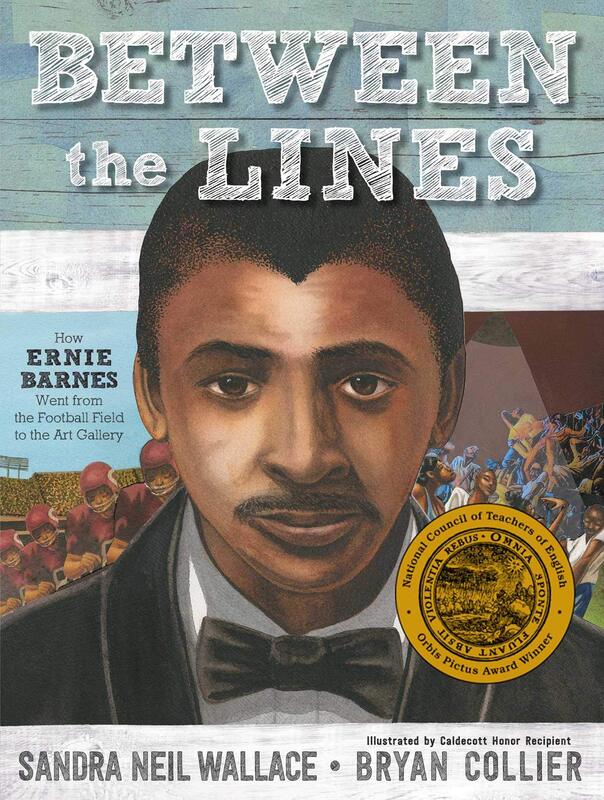
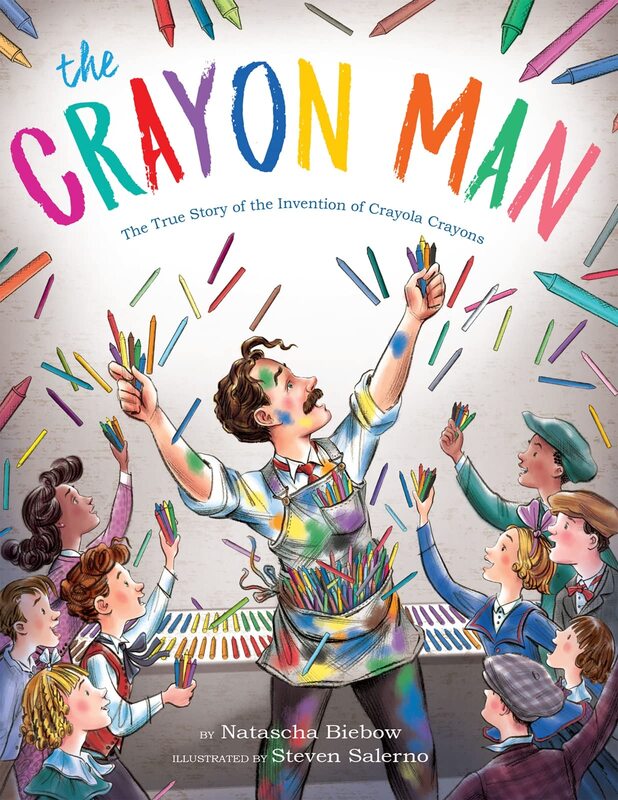
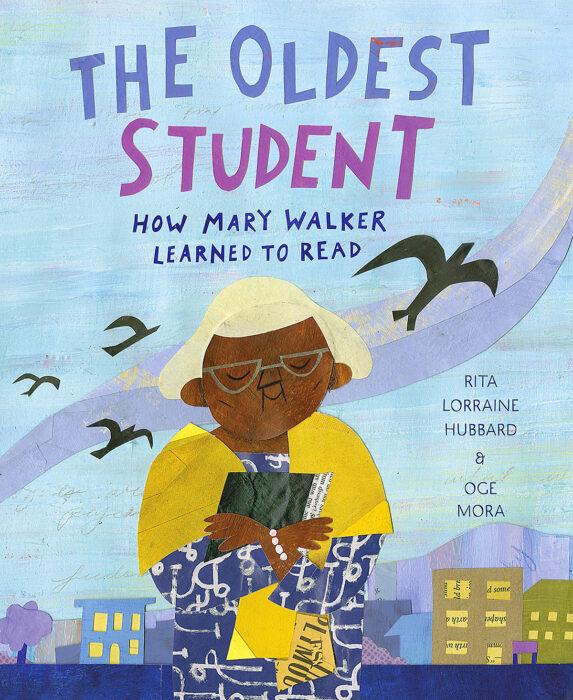
 RSS Feed
RSS Feed